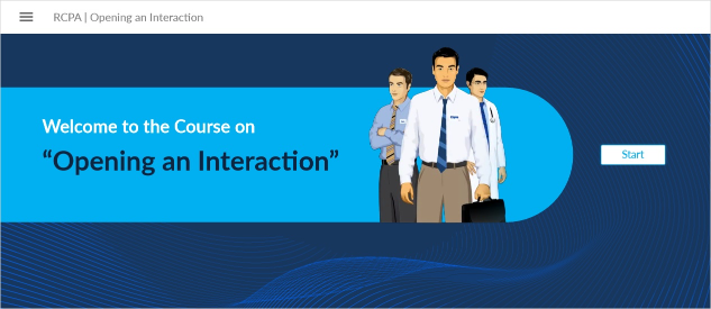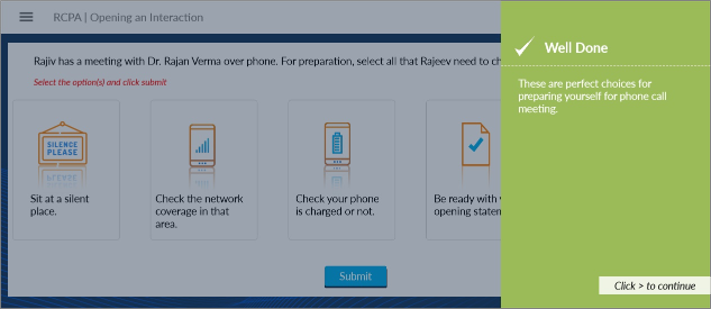Custom eLearning Solution
Promote global sales with translations & localization
Translations and localization grow your business around the globe. And that goes for your website, documentation, customer support, or…training. Listening to or reading in our native language increases comprehension and retention.
There’s no language or culture like our own


Get ready to do business abroad
- Cultural Adaptation: We customize your training content to align with cultural, social, religious, and legal norms in target markets.
- Practical Example: For instance, if your business involves food, we ensure sensitivity to cultural dietary practices. In a country where pork consumption is restricted, we would not include images or references to pork in training materials.
- Impact on Learners: Failing to respect cultural norms could alienate learners and undermine the effectiveness of training efforts. It's crucial to maintain cultural sensitivity to engage and motivate international sales reps effectively.
We help you win in the international market
Cross-language consistency adapted to localities
Research-driven Approach: We initiate localization with thorough research into target markets.
Comprehensive Localization: We adapt all multimedia elements of your training solution, including text, illustrations, and animated videos, ensuring relevance to each country's audience.
Writer and Designer Roles:
- Translate content into various languages while considering nuances and idiomatic expressions.
- Adapt messages and contexts to align with cultural and social norms of each country.
Quality Assurance:
Content undergoes rigorous review by native speakers to ensure message integrity across languages and cultures.
Your customers’ view of the world matters to us
Our project managers have years of experience building localized training solutions. And because of that, our solutions always seem created especially for each market you target.
Localization is about making an impression on your customers by adjusting content to fit into the world as they experience it.
Training content that feels local
With translations and localization, you get effective local training. Localized content drives learners’ engagement with the training’s topic. They absorb, retain, and recall lessons better. Ultimately, you increase global sales because your employees feel that the training content is relatable.

Case Studies
Launching eLearning Modules for a Leading Event Management Company
A leading event management company in the U.S. aimed to transform their top-selling Amazon books into comprehensive eLearning modules. However, several challenges arose:
Understanding eLearning Dynamics::
The client needed guidance on the principles of eLearning, including design and development strategies.
Scope Creep:
Frequent changes in project scope complicated the content development process, leading to uncertainty and potential delays.
Understanding eLearning Dynamics::
The client needed guidance on the principles of eLearning, including design and development strategies.
Scope Creep:
Frequent changes in project scope complicated the content development process, leading to uncertainty and potential delays.
To address these challenges, we proposed a structured approach to develop 30+ hours of eLearning content aligned with the client’s curriculum. Key components of our solution included:
eLearning Content Development:
We designed engaging modules tailored to various complexity levels, specifically levels 2 and 3, ensuring that learners could grasp essential concepts effectively.
LMS and Mobile App Integration:
We identified a suitable Learning Management System (LMS) to implement the eLearning strategy and developed a mobile app to facilitate easy access for users.
Salesforce Integration:
The mobile app was integrated with Salesforce, allowing the client to generate and track leads efficiently, linking eLearning success with business growth.
eLearning Content Development:
We designed engaging modules tailored to various complexity levels, specifically levels 2 and 3, ensuring that learners could grasp essential concepts effectively.
LMS and Mobile App Integration:
We identified a suitable Learning Management System (LMS) to implement the eLearning strategy and developed a mobile app to facilitate easy access for users.
Salesforce Integration:
The mobile app was integrated with Salesforce, allowing the client to generate and track leads efficiently, linking eLearning success with business growth.
The implemented solution provided multiple advantages for the client:
Streamlined Learning Process:
The structured eLearning modules offered a flexible and engaging learning experience for users, promoting knowledge retention.
Enhanced Business Opportunities:
The integration with Salesforce enabled effective lead generation and tracking, directly contributing to the client’s sales efforts.
Scalability:
With a robust LMS and mobile app in place, the client can easily expand their eLearning offerings in the future, reaching a wider audience and increasing revenue streams.
This strategic partnership positioned the client to successfully launch their eLearning business while maintaining a clear focus on growth and scalability, turning their literary assets into valuable educational tools.
Streamlined Learning Process:
The structured eLearning modules offered a flexible and engaging learning experience for users, promoting knowledge retention.
Enhanced Business Opportunities:
The integration with Salesforce enabled effective lead generation and tracking, directly contributing to the client’s sales efforts.
Scalability:
With a robust LMS and mobile app in place, the client can easily expand their eLearning offerings in the future, reaching a wider audience and increasing revenue streams.
This strategic partnership positioned the client to successfully launch their eLearning business while maintaining a clear focus on growth and scalability, turning their literary assets into valuable educational tools.



Contact with our experts
Related solutions
Frequently Asked Questions
1What's the difference between translation and localization?
Translations are the most well-known part of the localization process. They consist of transferring content from one language to another. And that content may be text, photographs, illustrations, graphs, videos, and/or audio.
On the other hand, localization transfers content from one culture to another. Language is only part of a country’s culture.
2What are examples of localized content?
- Different time and date formats used in various countries
- 24-hour and 12-hour clock times
- The order of numbers in dates
Scenarios and examples localized geographically and culturally
- Character creation based on cultural norms
3Do translations contemplate language variants?
Ours do! Language locale—such as British and American English—are examples of differences within the same language. Other examples are French from France and Canada and Spanish from Spain and Mexico.
Our writers know the difference between language locales, so our translations account for those too.
